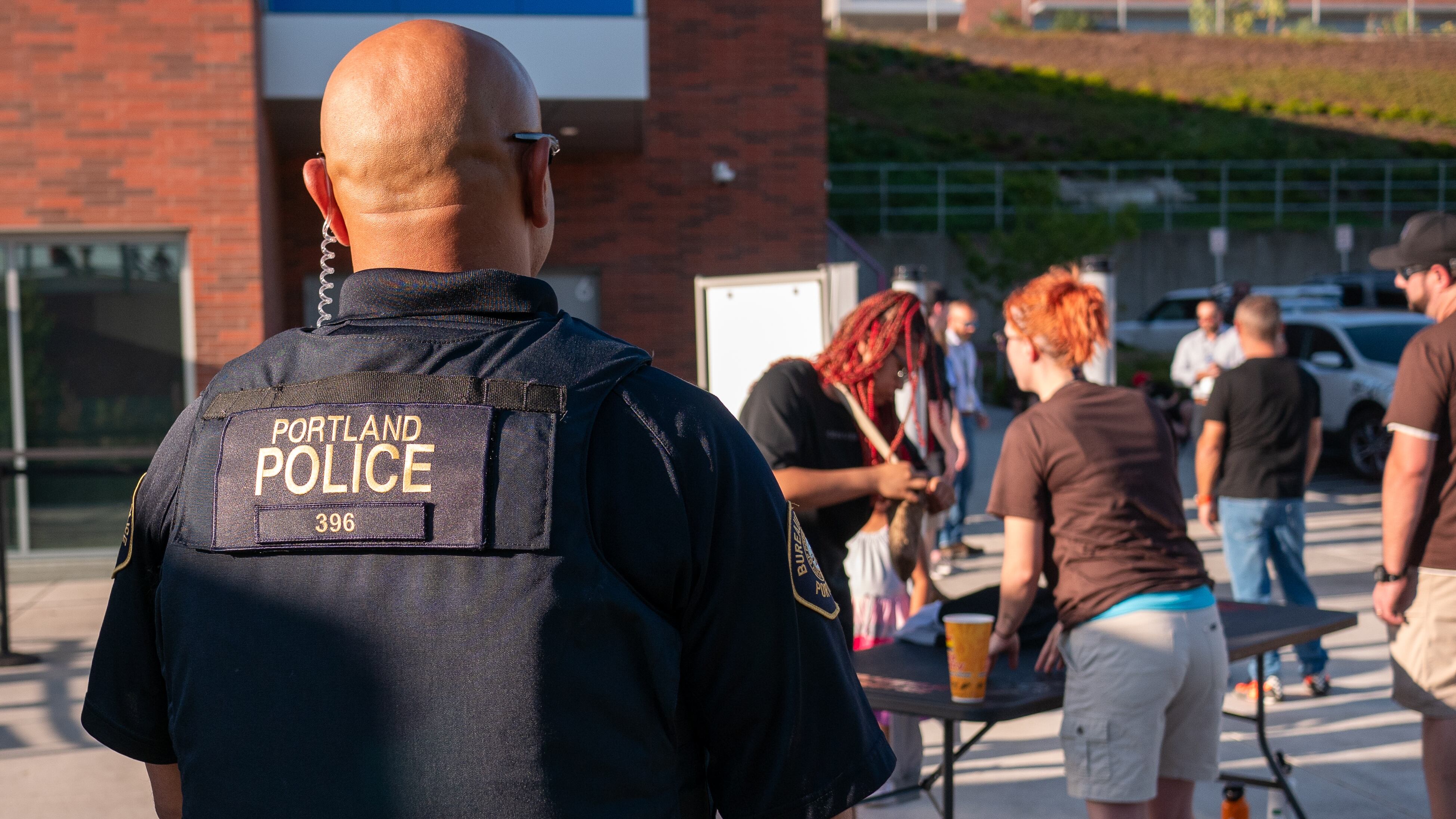As of this morning, Portland joined every other major city in the nation by strapping cameras to its cops. The Portland Police Bureau announced it has launched body-worn cameras in the Central Precinct, which covers over 41 square miles of the city, including the west side of the river and the Central Eastside.
That means 110 officers—about a third of the bureau’s patrol officers—are now dispatched into the city wearing body cameras, a bureau spokeswoman tells WW.
The rollout will expand into the North Precinct in mid-July, and the East Precinct and other divisions will join in late August.
The issuing of the cameras has been a decadelong battle, even as other cities embraced cameras as a way to hold police accountable for shootings and other use of force. Yet more often than not, it was Portland progressives and civil liberties watchdogs who objected to the cameras—fearing that police officers would get first access to the footage and use it to shape their reports after using force.
By 2021, Portland’s was the only police department out of 75 of the country’s largest municipal law enforcement agencies not to have body cameras. That’s when the U.S. Department of Justice stepped in, advising that body cameras would speed the Police Bureau’s compliance with a federal settlement over use of force against people with mental illness. Polls showed that 96% of voters were in favor of body cameras then. But funding came and went, even as city officials quarreled with the Portland Police Association about letting officers “pre-review” the footage their cameras record.
Last year, the city and the police union reached a compromise: In cases where someone is injured or dies, officers must give a recorded account of what happened before reviewing video.
Since getting the City Council’s green light on cameras on April 26, 2023, police brass have tested them on several squads and consulted with other agencies across the country that have already implemented body cameras, including Baltimore, Albuquerque and Oakland.
“We focus on national best practices and the Chief constantly discusses that we are a learning organization,” bureau spokeswoman Terri Wallo Strauss told WW in an email.
So when are the cameras rolling? The camera, made by Axon, automatically turns on when a member activates emergency vehicle lights or draws their firearm—any Axon body camera in a designated area will also be activated in these situations. The bureau policy says the officer who makes initial contact with a person will announce that they are recording.
Mistakes are expected, it seems. “For the first 60 calendar days of any Bureau member first being issued a BWC in an assignment that requires the wearing of a BWC in an assignment covered by this directive, members shall not be subject to discipline for errors in applying this policy that are not intentional,” part of the policy states.
Oregon public records law requires the bureau to retain the recordings for a minimum of 180 days.

